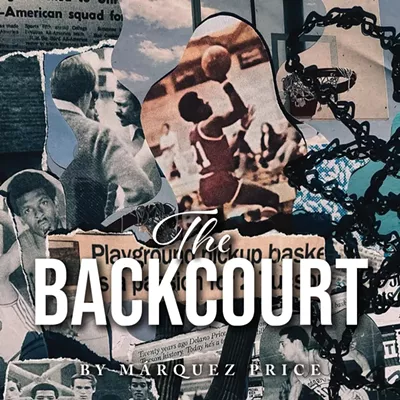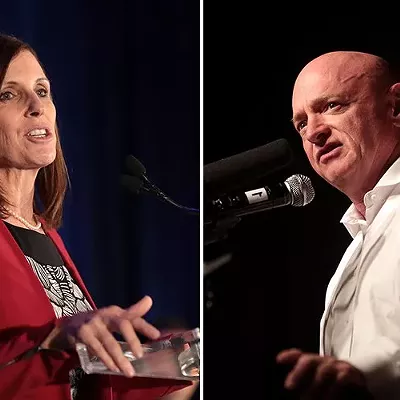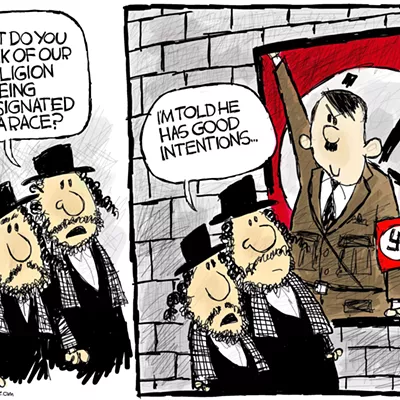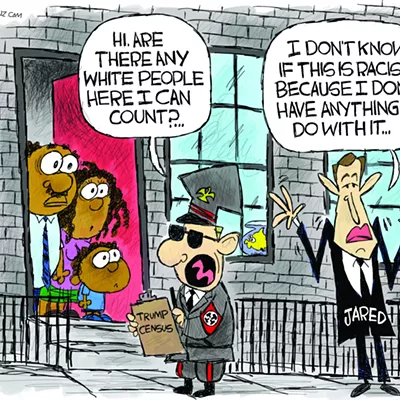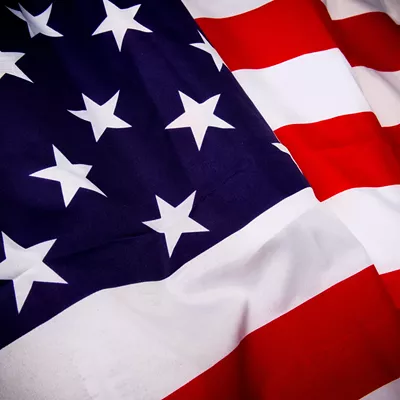After writing a column in which I recounted how I suggested that a former ballplayer of mine should not give her expectant child a name that, in our racist society, might retard the child's social and/or educational opportunities (July 31), I learned that letter-writers like to put words in my mouth.
They get so fired up sometimes that they also concoct dead-end analogies. One woman wrote, "He forgot to suggest that Chicanos stop naming their sons Juan and settle for John." What is that analogous to? There's no "black" language, except maybe in Oakland. I still don't get what she was suggesting. John is to Juan as Robert is to Jer'MelQuan?
I fully understand that there is still racism in America. Why else would I tell my former player what I did? It would be great if we lived in Star Trek World, where everybody had equal opportunity. You could name your kid Uhura and fully expect her to grow up to be the smartest and best-looking person in the entire Starfleet.
But we don't live there and then. We live here and now. Those of us who have lived long enough know that things are much better than they used to be, but they're still not where they should be. And any future progress will be slow and incremental. The law has done about all it can, and now it's going to be a matter of changing people's minds and hearts, one at a time.
Knowing that racism still exists, and that racists in positions of authority might make snap judgments about an unseen kid based on his/her name, would you still give the kid that name? And if so, why? To show society what's up? To gamble that your kid will be the one who bucks the odds? To throw up extra roadblocks to help make your kid tougher and more resilient? You have the right to name your kid anything you want, but should you?
One of the hardest lessons to learn in this life is that an unpleasant truth is still the truth. If Barack Obama and John McCain use different phrasing to make the same truthful point, the average knucklehead is going to choose one and reject the other. The intelligent person is going to recognize that both are saying the same thing, and the wise person is going to be able to accept as truth both statements.
Let's look at it this way: We'll liken the challenge to achieve a position of stability, identity and success as a young adult to running a 400-meter race. Because of racism in America, a black kid is going to have to run extra. Obviously, 150 years ago, the black kid wouldn't have been allowed on the track. And 60 years ago, he probably would have run 800 meters to the white kid's 400.
But today, we'll say he has to run an extra 5 or 10 percent. (We can quibble over the numbers, but the actual figure isn't the important part of this example; please stay with me.) The expectant child in the aforementioned column has no father in the picture, so that means that while running the race, he'll have trouble making out exactly where the lane lines are.
Those of you who think that the kid doesn't need a dad, stop reading right now. There are big words up ahead, and they might do you damage. A lot of people find themselves as single parents for one reason or another, and most do the best they can under the circumstances. I will never denigrate the efforts of those who fight the good fight as a single parent, but neither will I ever accept the ridiculous premise that one is as good as two.
So you've got a kid who has to run farther because of the color of his skin, and will have trouble with the boundaries because he has no father. Now it comes time to naming the child, and you're going to saddle him with some made-up thing that's the equivalent of strapping ankle weights on his legs. Oh, you do it with looooove, but all that amounts to is painting pretty hearts on the ankle weights.
We should all agree that it's not right and it's not fair that, to this day, some people still judge others by the color of their skin. It's not right that kids grow up without both parents. And it's not fair that you might encounter roadblocks because of the name your parents stuck you with. Those things aren't right, and they're not fair, but they're there, and to purposely ignore them does not serve a child's best interests. That's unpleasant, but it's also true.
I'm not in any way suggesting that we should knuckle under to racism. We should all fight it. But thinking that you're fighting racism by giving a kid a name that he's going to have to carry around for life doesn't seem right. That's not you showing racist America what's what. It's you forcing your kid to do that, and maybe the kid doesn't want to fight that fight in that particular way.



